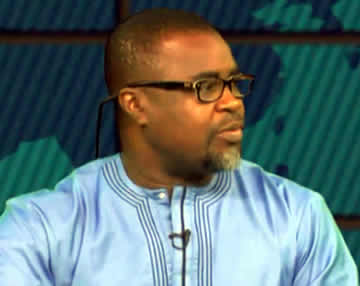
Where a Petitioners contends that the winner as declared by INEC did not win the election by majority of lawful votes, the evidence to be led to prove such assertion, which is questioning the figures or scores of candidates at the election, must be tendered in evidence, ie all the necessary documents by way of forms and other documents used at the election. He should not stop there. He must call witnesses from all those polling units to testify that the illegality or unlawfulness substantially affected the result of the election. The documents are amongst those in which the results of the votes are recorded. The witnesses are those who saw it all on the day of the election not those who picked the evidence from an eye witness. No. They must be eye witnesses too. Both forms and witnesses are vital for contesting the legality or lawfulness of the votes cast and the subsequent result of the election. One cannot be a substitute for the other. It is not enough for the petitioner to tender only the documents. It is incumbent on him to lead evidence in respect of the wrong doings or irregularities both in the conduct of the election and the recording of the votes; wrong doings and irregularities which affected substantially the result of the election. See ABUBAKAR & ORS v. YAR’ADUA & ORS (2008) LPELR-51(SC) at Pp. 176-177, paras. G-E; UCHECHUKWU & ANOR v. OKPALAKE & ORS (2010) LPELR-5041(CA) @ Pp. 41-42.
Section 139 of the Electoral Act, 2010 (as amended) sets the bar and standard of complaints required in order to invalidate an election. The said section is clear to the effect that a complaint of non-compliance must substantially affect the result of the election. Discerning from this is the obvious fact that the substantiality of the non-compliance must be rooted in hard and cogent evidence. This requirement is a very strict one and does not allow for any form of variation since the statute uses the mandatory word ‘Shall’ which indicates compulsion, inconsistent with the principle of discretion. See UGWU V. ARARUME (2007)12 NWLR (PT.1048)367. This strict requirement of proof is also evidence of the adversarial nature of our jurisprudence on evidence.
The law is clear from decided authorities that before a petition can succeed on the ground of non-compliance with the provisions of the Electoral Act, the petitioners must prove not only that there was non-compliance with the provisions of the electoral act but that the non-compliance substantially affected the result of the elections.
In other words, the petitioners have two burdens to prove: –
2. That the non-compliance took place;
3. That the non-compliance substantially affected the result of the election.
See BUHARI V. INEC (2008) 19 NWLR (Pt.1120) page 246 at 435 to 436; see also the case of OGBORU V. OKOWA (2016) 11 NWLR (Pt. 1522) 84 SC at 121 paragraphs D-E.
The law is that there is a rebuttable presumption of regularity in favour of election results as declared by INEC. This presumption is anchored on Sections 146 and 168 of the Evidence Act.
5.27. The burden lies on the party that disputes the correctness and authenticity of the results to lead rebuttal evidence. See Buhari Vs Yusuf (2005) 13 NWLR (941) 1 at 255 C – D, H; 193 D.
The burden of proof is on the person who asserts. Consequently, where a petitioner fails to either plead or call evidence in support of the ground of petition or where he calls insufficient evidence, the petition is liable to be dismissed. SeeAbba v. Jumare (1999) 5 NWLR (pt. 602) 270 at 278, Rimi v. INEC (2005) 6 NWLR (pt. 920) 56 at 84, Chime v. Onyia (2009) 2 NWLR (pt. 1124) 1 at 70 paras E-H.
In Okechukwu vs. INEC & 25 Ors (2014) (SC 1) at page 50, the Supreme Court held that 12 witnesses are not enough to establish irregularity in 4,608 polling unit. In Chukwuemeka Odumegwu Ojukwu vs. Edwin Onwudiwe & 3 Ors (1984) 2 SC 11 at pa 106, the supreme court held that there was substantial compliance where an election took place in 86 out of 130 polling units. The implication of the above mentioned pronouncement of the apex court is that even if elections did not hold in all the polling units where the Petitioners alleged irregularities, but held in majority of the other polling units, the return made by INEC would still have substantially complied with the provision of the Electoral Act 2019 (as amended) See the case of Awuse v. Odili (2005) All FWLR (Pt. 261) 248 at 316, Ogboru v. Okowa (2016) 11NWLR (pt. 1522) SC 84 at 123 Para. F.
Just my thoughts.
@Liborous Oshoma Esq.
END

Be the first to comment